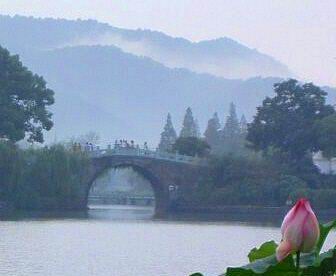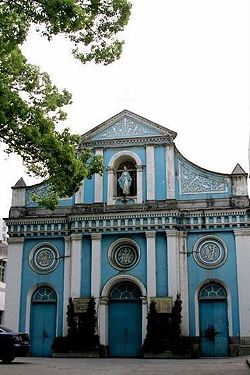These are the answers to some questions that I recently posed to my friend Bill McKibben. Back in 1996, I wasted gallons of fossil fuel driving around a mountain in the Adirondacks trying to find Bill; his wife, Sue Halpern; and now grown-up daughter, Sophie. This family was one of three profiled in my honors thesis. Now Bill is a Scholar-in-Residence at my alma mater
and an internationally-known leader in the fight to arrest anthropogenic climate change.
Alex: Charles Kupchan
recently wrote in the New York Times, "The democratic, secular and free-market model that has become synonymous with the era of Western primacy is being challenged by state capitalism in China, Russia and the Persian Gulf sheikdoms. Political Islam is rising in step with democracy across the Middle East. And left-wing populism is taking hold from India to Brazil. Rather than following the West’s path of development and obediently accepting their place in the liberal international order, rising nations are fashioning their own versions of modernity and pushing back against the West’s ideological ambitions." Which style of government do you think has proven itself best equipped (in practice, not in theory) to address the serious threats posed by climate change? Why?
Bill: I think our only hope is people's movements rising up--so, the kind of governments where that can happen is preferred I suppose. As the Arab spring shows, it can happen almost anywhere
Alex: John Daly wrote a piece for
oilprice.com where he discussed the state of fracking in China and outlined joint plans for technology transfer negotiated by Obama and Hu Jintao. What are the ethical and environmental ramifications of these developments?
Bill: A few years ago we might have said: not so bad, since burning natural gas is better than burning coal. Now we know more about fracking, and the evidence indicates not only that it does massive environmental damage close to home (the latest study indicates disposal of fracking water has been triggering earthquakes across the U.S.) but that enough unburned methane escapes into the atmosphere, negating the theoretical global warming benefits.
Alex: You have been a leader in the effort to slow the construction of the Keystone XL Pipeline. What do you say to those, like Joe Nocera of the New York Times, who argue that if the United States does not buy Alberta shale oil from the tar sands, it will be shipped to China, so we had best buy from a trusted ally and neighbor?
Bill: Well, it has to get to China first. They're trying to build a pipeline to the Pacific that would make that easy, but so far Canadians, especially First Nations peoples, are effectively blocking it. Even if we get very lucky, given five or ten years the Canadians will find a way to get those tar-sands out--which means in the next five or ten years we better do the work necessary to make sure that the world fears climate change enough to demand that carbon be kept in the ground. Because in global warming terms, of course, it makes no difference where it's burnt.
Alex: What are the major stumbling blocks between China and the US as they seek to forge a binding international agreement on climate?
Bill: I think the power of the fossil fuel lobby within each country that constrains actions by leaders
Alex: Have you been to China? If so, where did you go? What impressed and depressed you?
Bill: Several times. Depressed by: urban air pollution, desertification, water pollution. Impressed by: drive of the people to work, and by the rapid introduction of some new technologies (see below). (also impressed by the food)
Alex: You once wrote a book called
Hope, Human and Wild. Are you aware of any really hopeful stories in China? Is there any transferable massive project or replicable local endeavor that you think sets an example for other nations?
Bill: I think the rapid adoption of solar thermal technology is a very good sign--it's the biggest source of renewable energy on earth, solar hot water in China. There are a number of cities where adoption rates approach 100%, and the total for the nation may be as high as 25%--compared with less than 1% in the U.S. So, while China is emulating some of our bad habits (coal plants, cars) it is also creating some good habits we'd do well to copy.
Alex: If you could ask the average city dweller in China to do or not do one thing that would help the climate and help China develop in sustainable ways, what would it be? Please answer this question for rural residents, as well.
Bill: For urban dwellers: return China to a biking country. It's what the most avant garde cities on the planet (Copenhagen, Stockholm) are rapidly doing, and it would make life easier in every way.
For rural dwellers: well, I always thought my old friend Ren Xuping,
the rabbit king of Sichuan, was on to something. Animal protein without grazing, on a scale easily accessible to women and children, with small capital investment and best of all helping not hurting China's huge soil erosion problem. It grew out of a Heifer project in the '80s, so I like the sense of international solidarity too.
Alex: I live in one of the largest high-speed train manufacturing areas in the world. Do you think President Obama, during a second term, would be able to make more progress on improving the transportation infrastructure of the United States? Do you think high-speed trains are the right technology to focus on?
Bill: I think trains period in the U.S.--we're not going to get super high speed trains except perhaps on a couple of corridors. But
we can have fast enough trains.
Alex: Eating meat was rare for millions of Chinese country-side dwellers just a couple of decades ago. Now eating meat is a status symbol here. Feeding the world's growing population is likely to be a challenge with climate as a complicating factor. What do you think can be done to make farming and eating sustainably a priority of governments and their populations? Please answer this question in the context of the findings in this report
Achieving food security in the face of climate change, referenced in this
New York Times article.
Bill: I think if we're going to eat meat, we should do our best to copy culinary practices in China and elsewhere--i.e., treat it almost as a condiment, a flavoring, and hence use smaller amounts than the 'great honking slab' method of American cooks. And I'm glad to see
practices like semi-vegetarianism spreading




















































